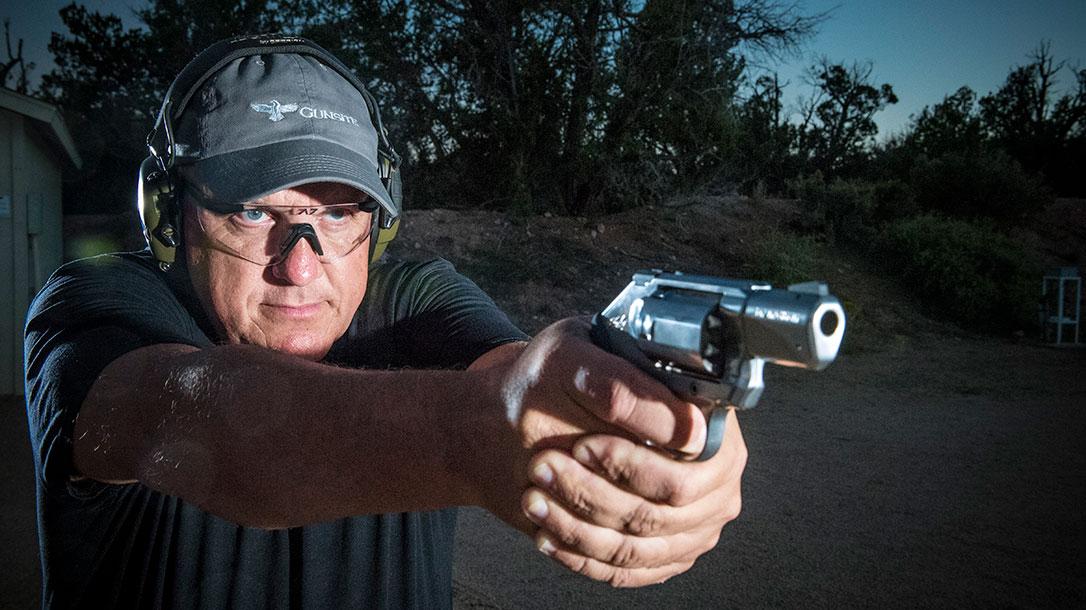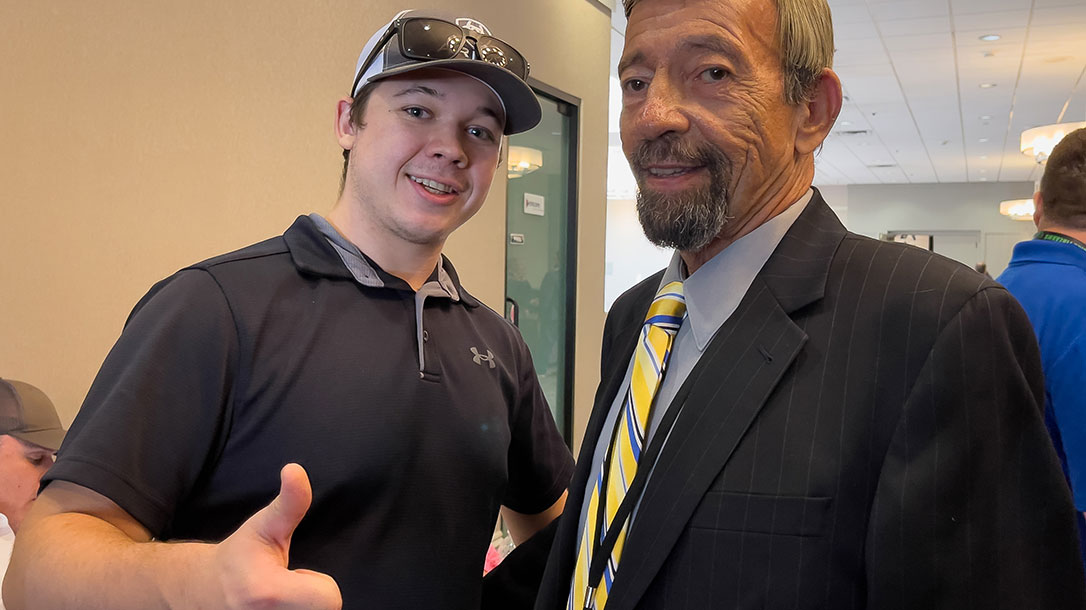Perhaps the most prevalent myth, or advice, you find in discussions of self-defense shooting aftermaths is “a good shoot is a good shoot.” Whenever I hear that I want to answer “Yeah, and next Christmas Eve a little fat guy dressed in red is gonna come down your chimney and give you some presents, too.”
Debunking Bad Advice About Self-Defense
The fact is, society doesn’t see it as a good shoot until the justice system says so. The press gets a vote, too, which in turn influences the verdict from the Court of Public Opinion.
Kyle Rittenhouse was tried and conclusively found Not Guilty in the shooting of three attackers during the Kenosha riots. As was George Zimmerman in the shooting death of Trayvon Martin in Florida. Yet both men today have been made pariahs by the media and the various “influencers.”
From the Lawyers…
One canard you hear from lawyers a lot is “I don’t care if my client gets arrested and spends some time in jail. My job is to see that he doesn’t get convicted at trial and get a long prison term!”
Well, guess what—the client does care! The lawyer who gave that advice isn’t the one who’s going to be interviewed for his dream job later and face dialogue that sounds like this:
“You seem to be an excellent candidate. So, forgive me, but I’m required to ask you if you’ve ever been arrested.” You have to honestly answer, “Well, yes, but…”
Before you can finish, you see the interviewer’s eyes widen.
He says, “What were you arrested for?”
“Well, murder, but…”
And the next thing you hear is, “Uh, we’ll get back to you. Thank you for coming.”
A lawyer with a more realistic view, born of experience, is Kevin Jamison. Kevin specializes in this sort of case and has done many self-defense shooting cases. He writes the legal column for the United States Concealed Carry Association’s magazine, Concealed Carry.
In the February-March 2024 issue, on page 40, he writes, “An arrest commonly results in job loss. Professional licenses may be suspended. Some friends will fall away. Authorities may seize assets on the excuse that they are related to the offense.”
It Only Takes One
Many lawyers have told their clients, “We don’t have to convince twelve jurors to vote to acquit you. We just have to convince one.”
Now, it’s true that with a unanimous verdict required, one vote for Not Guilty against eleven for Guilty can indeed create a hopelessly “hung jury,” resulting in a mistrial. But that doesn’t mean you walk away. The charge of Murder, Manslaughter, Aggravated Assault, or whatever is still there—hanging over your head.
The other side has the option of giving up and dismissing the prosecution. But do you think they’re going to do that when—if this verdict had been decided on points—they would have won with an eleven-to-one score? Hell, no. They’re almost certainly going to take you to trial again!
The 11:1 verdict gives them leverage to argue to the judge that you should not be free on bond while awaiting that next trial. Specifically, it has incentivized you to flee and fail to appear in the second trial.
That means lots more time in jail. It means you’ll have to go through it all over again. However, the other side has seen your best game plan and is perhaps better prepared to make you look guilty to one and all the next time around.
It can take many months until the next trial. At which time, you’ll have to spend another six figures for legal fees and costs.
Does that sound like a victory to anyone with a three-digit IQ?
To Cross or Not to Cross
Some defense attorneys tell their clients reassuringly, “Don’t worry about being cross-examined. I never allow my clients to go on the witness stand. They don’t have to!”
No, you don’t have to testify if you are the accused—unless you want the jury to know your side of the story.
Most of the defense lawyers’ clients are guilty as charged or at least of some lesser included offense. There is nothing to be gained by putting them on the witness stand where they can’t do anything but lie and get an additional charge of perjury. Not to mention, it opens the door for their defense lawyer to be accused of the crime of subornation of perjury if he knew beforehand the lie was going to be spoken.
So, of course, their reflexive fallback is not to put them on the stand. But you are entirely different: the genuinely innocent, falsely accused defendant.
This isn’t a “who done it” anymore. A self-defense case is an affirmative defense, that is, a strategy of saying, “Yes, I shot him. But I was correct in doing so.”
It’s now a “why did he or she do it?” And who but the person who pulled the trigger can truly answer that?
There are times when the defendant is medically or emotionally compromised and can’t take the stand. But apart from that, if I was the defendant in a self-defense case and the attorney told me he wouldn’t put me on the stand, I would fire him then and there.
He will have just told me he has no clue how to handle an affirmative defense. Which means he will not be able to carry it to a righteous verdict.
From the Internet Ninjas
Many of the voices on the internet are like ninjas in that they’re unidentifiable and tend to do harm. How many times have you heard this one: “Hey, if I get convicted, I’ll just appeal it!”
Appeals take time and cost a lot of money. And it’s all but unheard of for the convicted person to get bail to stay free during the appeal. Moreover, only a very small percentage of appeals result in an overthrow of the conviction. Defendants almost always spend that time in prison for the crime of which they’ve been convicted.
In one of my cases, a woman stabbed— in self-defense—the much larger husband who was trying to murder her. She became the defendant instead of the triumphant intended victim. The trial judge had not allowed expert testimony on her behalf and had screwed up part of his instructions to the jury. For both of those reasons, she finally got a new trial.
I testified on her behalf and was delighted when the second jury acquitted her on all charges. However, she had spent forty-some months behind bars. She has since changed her name and is trying to rebuild her life.
Appeals can take longer. One woman who fired in self-defense had a lawyer who didn’t use available expert testimony. In my opinion, they also made many other errors as her advocate. Her shooting took place in 2016, and her trial and conviction happened in the same year. It was not until May of 2013 that an appellate court finally heard her case.
I’m writing this at the beginning of the second quarter of 2024 and we’re still awaiting the appellate court’s decision.
Do those sound like desirable outcomes? Remember those cases the next time you hear, “If I’m convicted, I’ll just appeal.”
Resting my Case
There is altogether too much BS floating around out there, promulgated by people who’ve never been involved in shooting cases. This includes most of the nation’s estimated 1.3 million attorneys.
I would urge you to do what I do. Learn from the handful of master defense attorneys who have actually defended multiple armed citizens who fired in lawful self-defense and subsequently stood wrongly accused.
Didn’t find what you were looking for?
Read the full article here




